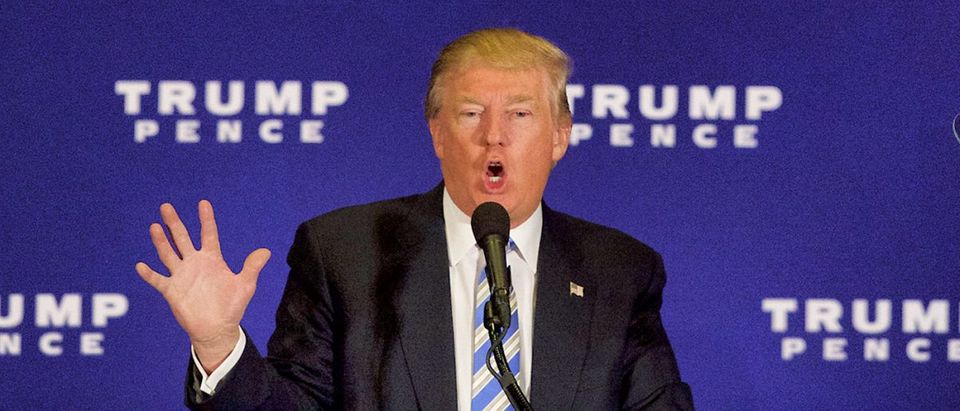For everybody in America except elite journalists, words have consequences–particularly if you endeavor to destroy somebody’s reputation with outlandish allegations absent corroborating evidence and not even made under penalty of perjury.
Although the media blatantly violated their own standards by unquestioningly circulating outlandish charges of sexual assault against Donald Trump, legally they are in the clear.
Not so all the “liars” Trump yesterday vowed to sue after the election for making the accusations.
“If Trump sued the news outlets that published the stories, motions to dismiss would be granted,” explains a veteran civil rights lawyer who has represented libel defendants. “But suits against the women would be impossible to dismiss, I think, because if Trump swore that he never touched the plaintiffs, a judge or (if demanded) a jury would have to decide what happened.”
The source, let’s call him “Serpico,” was referring to the standard defendants must meet to have lawsuits thrown out of court. They must argue the facts and relevant law are not in dispute so there is no reason for allowing a jury to hear the case because they would decide against the plaintiff anyway.
In the case of Trump’s accusers, of course, the whole matter turns on what happened or didn’t happen. Something only juries can determine.
Meanwhile, although New York Times reporter Michael Barbaro is not man enough to respond to criticism that he turned the paper into the personal Facebook page of Trump accuser Jessica Leeds, complete with her own personal photo but no hard evidence that the GOP nominee sexually assaulted her like she claimed, Serpico has stepped forward to do it for him.
He particularly resented criticism here that the Times did not even identify the company where Jessica Leeds worked when Trump supposedly got all handsy with her like an octopus on an airline flight decades ago.
“I’m puzzled about why you think the name of this woman’s employer is relevant,” he emailed in response to criticism of the Times story. “What difference does it make whether she worked for Weyerhaeuser or Kimberly-Clark? And how would knowing that fact enable anyone to confirm or disprove her allegations? Are you hoping to prove that she didn’t actually work for a paper company at all, but for ACORN? Maybe you want to see her tax returns?”
Serpico also does not think the women have credibility problems because they are suddenly popping out of the woodworks. “I don’t find it at all suspicious that these women are coming forward now. The videotape made Trump’s conduct toward women an issue. His denial, in the second debate, that he ever engaged in such conduct amounted to a dare to these women to come forward. And once the first one or two came forward, that gave the others courage to do the same.”
But unlike most journalists he is at least willing to entertain the possibility that these women are lying. “Of course it’s conceivable that some, or even all, are manufacturing these stories to harm Trump,” Serpico conceded. “But to my mind, the timing is not evidence of that. What would have been the point of coming forward earlier? Trump would have denied it, and these women were in no position to afford to defend themselves against a Trump lawsuit.”


